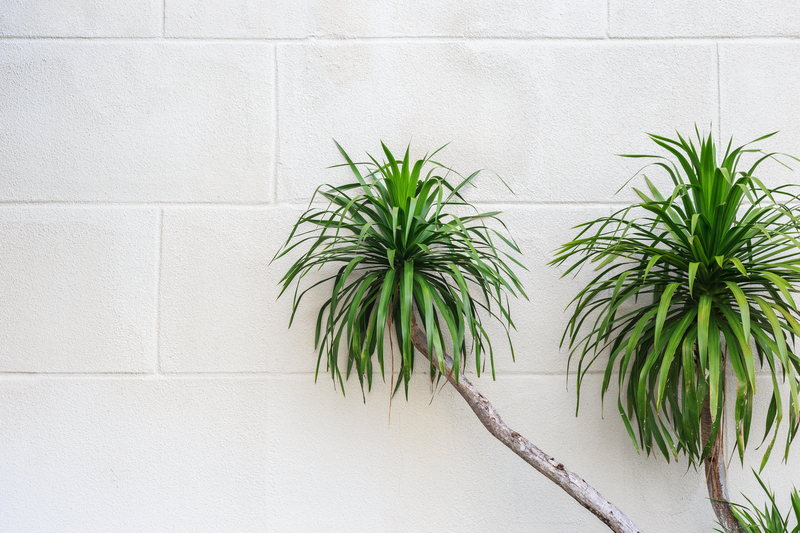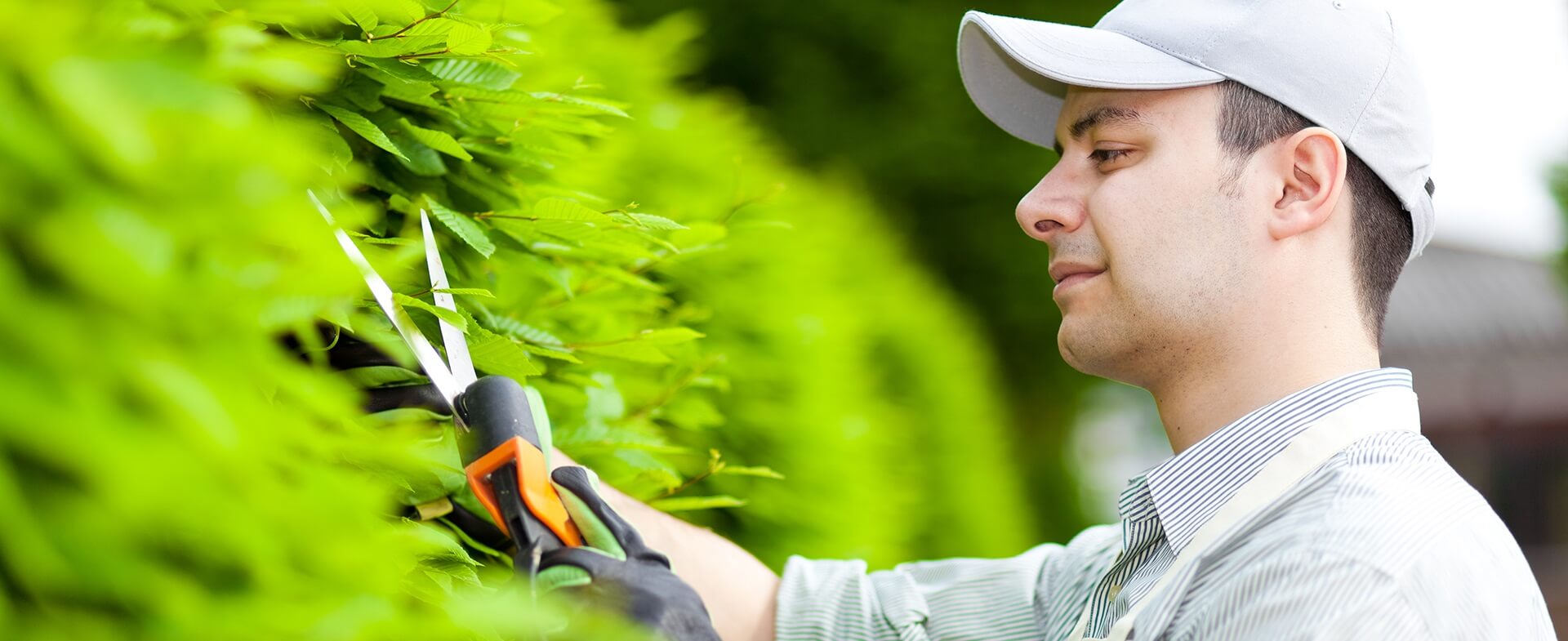Organic Waste Solutions for Healthier, Richer Soil
Posted on 29/05/2025
Organic Waste Solutions for Healthier, Richer Soil
Unlocking the true potential of your garden or farmland often starts below the surface. Organic waste solutions offer an eco-friendly avenue to transform your soil, making it healthier, richer, and more productive. Whether you're a home gardener, an urban farmer, or an agricultural professional, understanding the power of organic waste for soil improvement can help you nurture robust plants, support local ecosystems, and reduce environmental impact.

Understanding Organic Waste: The Key to Soil Fertility
Organic waste encompasses any biodegradable material originating from plants, animals, or food processing. Properly managed, it becomes a valuable resource instead of a liability. These wastes, when converted via composting or other techniques, replenish soil with essential nutrients and promote life within the ground.
In this comprehensive guide, we'll delve into:
- The main types of organic waste and their soil benefits
- Effective organic waste management solutions for different settings
- Sustainable practices for improving soil structure and fertility
- Innovative technologies for faster and safer organic waste decomposition
- Best tips for applying organic waste to maximize soil health
Types of Organic Waste for Soil Enrichment
Not all organic wastes are created equal, and understanding their diversity is valuable. Here's a look at common sources:
Kitchen Waste
- Fruit and vegetable scraps - Rich in carbon and nitrogen, break down quickly and add key nutrients to the soil.
- Eggshells - Provide calcium for plant growth and root health.
- Coffee grounds - Good source of organic matter, nitrogen, and can help repel certain soil pests.
Garden Waste
- Grass clippings, leaves, prunings, and plant remains are high in nutrients and can help improve soil texture.
Animal Manures
- Composted cow, horse, chicken, or sheep manure infuses the soil with nitrogen, phosphorus, potassium, and a myriad of micronutrients.
Other Organic Materials
- Paper, cardboard, wood chips (in moderation), and even some types of biodegradable packaging can supplement soil carbon content.
Why Use Organic Waste for Soil Health?
Transforming organic waste into soil amendments closes the ecological loop, turning by-products into productive resources. Here are the primary benefits:
- Restores soil nutrients - Replaces what's extracted by plant growth, preventing long-term depletion.
- Enhances soil structure - Reduces compaction, increases porosity, and helps soil retain water and air.
- Boosts beneficial microbial activity - Organic material feeds the microbial life that drives soil fertility.
- Suppresses soil-borne diseases - Healthy, biodiverse soil is more resilient against pathogens.
- Reduces waste sent to landfills - Less landfill use means lower greenhouse gas emissions and pollution.
- Saves money - Producing your own soil amendments is cheaper than purchasing chemical fertilizers.
Effective Organic Waste Solutions for Any Setting
Whether you have a small urban plot, a sprawling garden, or manage agricultural lands, you can implement the following organic waste solutions for richer soil:
1. Composting
Composting is the classic and most accessible method of transforming organic waste into "black gold" for the soil. This natural decomposition process breaks down kitchen and garden waste over weeks or months, resulting in nutrient-rich compost.
- Backyard composting - Use a bin or heap for food scraps, yard waste, and shredded paper.
- Vermicomposting - Employ red wiggler worms to speed up food waste decomposition in a smaller space.
- Community composting - Urban residents can participate in municipal or community-run composting programs to divert larger amounts of food and organic waste.
2. Mulching
Organic mulches such as grass clippings, leaves, straw, or wood chips can be spread directly over the soil surface.
- Conserves soil moisture
- Suppresses weeds
- Adds organic matter as it breaks down
- Aids beneficial insects and soil organisms
3. Sheet Composting and Lasagna Gardening
Layer organic waste right where you plant to create rich soil beds over time. This no-dig method is ideal for improving poor ground and starting new garden beds.
- Alternate layers of "greens" (wet materials, nitrogen-rich) and "browns" (dry materials, carbon-rich)
- Top with organic mulch or compost to accelerate decomposition
4. Bokashi Composting
A Japanese innovation, Bokashi uses special microbes to ferment kitchen waste, including meat and dairy, quickly and with minimal odor. The material is then buried or added to a compost pile.
5. Anaerobic Digestion
For larger-scale or farm use, anaerobic digesters can turn food, animal, and green waste into biogas and digestate (a nutrient-rich byproduct for the soil).
How Organic Waste Nourishes Healthier, Richer Soil
1. Improving Soil Texture and Aeration
Adding organic waste boosts the proportion of organic matter, making heavy clay soils lighter and sandy soils more cohesive. This improvement in soil structure enables better root development and more efficient water/nutrient uptake.
2. Fertility and Nutrient Cycling
Organic matter from composted waste contains both macro- and micronutrients. As it decomposes, these nutrients become available for plant uptake, supporting vigorous growth.
3. Enhancing Biological Activity
A living soil teems with bacteria, fungi, protozoa, and earthworms. When you add organic amendments from waste, you feed this diverse community, which in turn makes nutrients available, protects against disease, and stabilizes soil structure.
4. Building Soil Carbon and Resilience
Soil with a high organic content stores more carbon, helping fight climate change, and is better equipped to resist drought, compaction, and erosion.
Best Practices for Using Organic Waste in the Garden or Farm
- Balance carbon and nitrogen - In composting, aim for a "browns to greens" ratio of about 30:1 for optimal decomposition.
- Avoid diseased plants and invasive weeds in compost; high heat kills pathogens but home compost piles may not always heat evenly.
- Allow animal manure to compost before applying to food crops, as raw manure can contain harmful bacteria and burn plant roots.
- Mix in stages - Apply composted organic waste in spring and late fall to allow nutrients to become available during the growing season.
- Always check local regulations for waste disposal and composting to stay compliant.
Innovations and Technologies in Organic Waste Management
Hot Composting
By managing aeration, moisture, and pile size, hot composting achieves faster breakdown and higher temperatures, which kills seeds and pathogens more effectively than passive systems.
In-vessel Composting
This system uses controlled, enclosed vessels to manage composting at industrial scale - perfect for cities, universities, or large farms handling large volumes of organic waste.
Biochar Production
Turning some organic waste into biochar (charcoal made via pyrolysis) can improve poor soils, especially in tropical climates, by increasing carbon content and nutrient-holding capacity.
Compost Tea and Extracts
Fermenting compost in water creates a "tea" or extract rich in nutrients and beneficial microbes, which can be applied as a foliar spray or soil drench to boost plant health and suppress disease.
Common Pitfalls and How to Avoid Them
- Odor issues - Result from excess wet "greens" or poor aeration. Mix in more "browns" and turn the pile regularly.
- Pests - Exclude meat and dairy from open compost piles and cover food waste with brown materials.
- Slow decomposition - Chop materials smaller and keep piles moist but not soggy to speed up breakdown.
Choosing the Best Organic Waste Solution for Your Soil
The right organic waste management approach depends on your available waste streams, space, time, and goals:
- Small-space gardeners may favor vermicomposting or Bokashi bins.
- Large gardens and farms can utilize traditional compost heaps, hot composting, mulching, and even anaerobic digesters.
- Urban dwellers and apartment residents can seek out community compost programs or use countertop systems for kitchen waste.
Additional Tips for Maximizing Soil Health with Organic Waste
- Rotate crops - Different plants draw on and replenish different nutrients; crop rotation combined with organic amendments improves soil biodiversity.
- Cover crops (green manure) - Grow specific plants to be chopped and incorporated into the soil, working as a renewable organic matter source.
- Test your soil - Analyze soil composition and pH to identify nutrient deficiencies and apply tailored organic amendments.
- Monitor for improvement - Rich, healthy soil is dark, crumbly, teeming with worms and roots, and smells slightly earthy.

Environmental and Economic Benefits of Organic Waste Recycling
- Reduces methane emissions from landfill-bound organics
- Protects water supplies by decreasing chemical fertilizer runoff
- Creates local jobs in recycling and composting industries
- Lowers community waste disposal costs
- Improves local food security by growing more resilient crops
Conclusion: Cultivating Abundance with Organic Waste Solutions
Incorporating organic waste solutions is one of the simplest and most sustainable ways to build healthy, fertile soil. From traditional composting and mulching to innovative approaches like Bokashi and biochar, there is an option to suit every grower and gardener.
Remember: Healthy soil means healthy plants, healthy people, and a healthier planet. By recycling food, yard, and animal waste into the soil, you nurture the grounds for flourishing ecosystems and abundant harvests.
Begin your organic waste journey today, and reap the long-lasting rewards of richer, more productive soil--naturally.
Explore more:
- Composting tips for beginners
- Urban organic waste initiatives
- Organic methods for building soil health
Be part of the solution--turn your waste into the wealth of the earth!
Latest Posts
Winter Warriors: Garden Plant Defense
Achieving Artistic Gardens through Hedge Trimming Techniques
Nature's Allies: How Gardening Fights Climate Change

